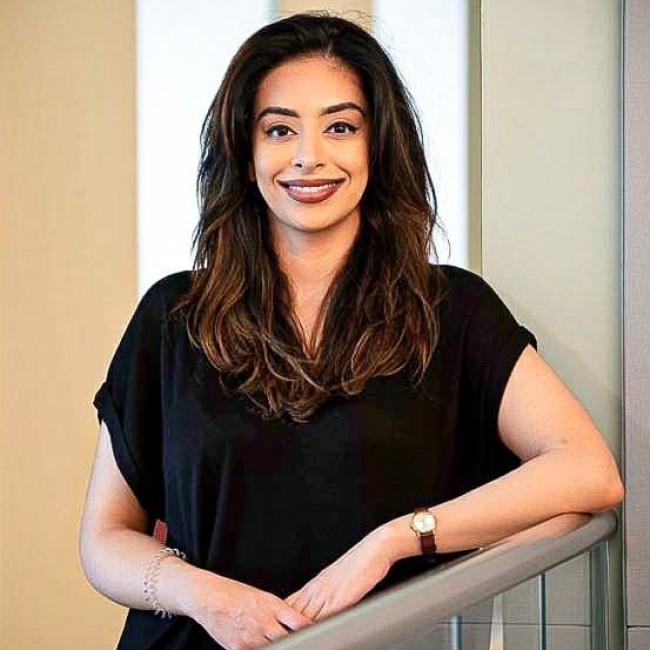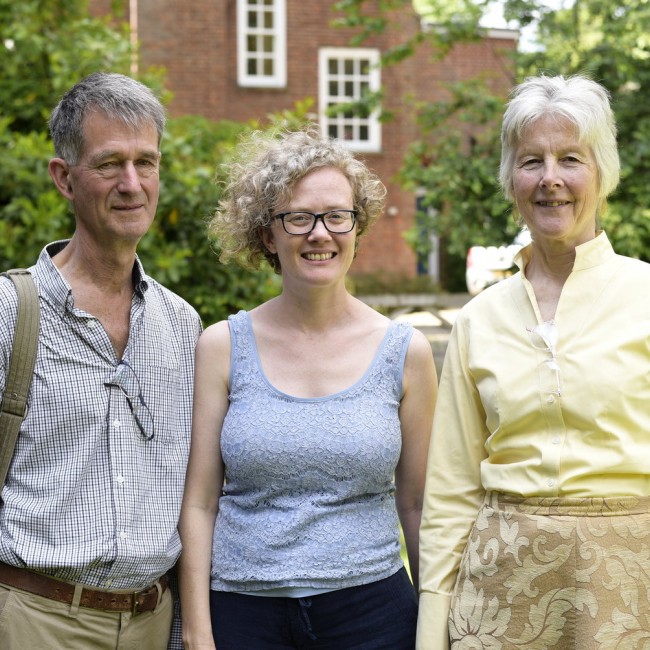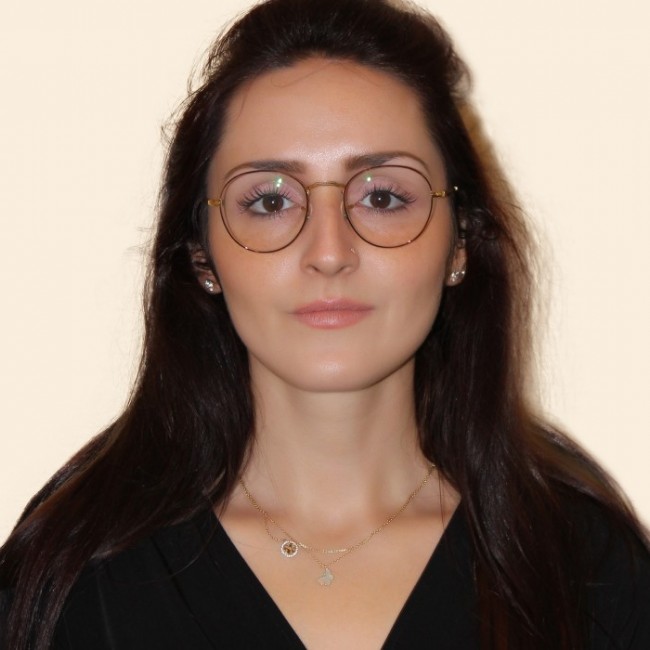Humaira
Humaira is the first Lucy Cavendish recipient of the jointly funded Rowan Williams Studentships established by the Cambridge Trust to support students who face severe barriers in coming to study in Cambridge, particularly those from precarious and dangerous conflict zones. Humaira lives in Afghanistan where she is Policy Adviser for a USAID programme which includes developing government agencies’ policies in favour of women. Her studies at Cambridge will assist Humaira to reach her long-cherished career goals to rise as a leader in Afghanistan and actively contribute to its policy-making process. One of her immediate ambitions upon completion of her studies is to establish a policy research organisation to provide briefs and proposals to the Afghan government.
Find out more
Ateka
Ateka grew up in south London in an immigrant family where no-one had ever been to university. After leaving school at 18 and working in retail, Ateka returned to education and took an Access to HE Diploma at her local further education college. Lucy Cavendish recognised her potential and offered Ateka a place. Three years later she graduated with a First Class degree. She subsequently held a senior management role in the London Academy of Excellence helping to reduce educational inequality in low-income neighbourhoods and taking responsibility for student leadership initiatives. Ateka went on to embark on a Master’s programme at Harvard University focusing on equality of opportunity in urban education. She has secured the first-ever joint Fulbright-Kennedy scholarship for these studies. Without Lucy Cavendish, Ateka would not have achieved these remarkable outcomes. And without Lucy Cavendish, Ateka would not now be addressing one of the 21st century’s pressing issues: inequality in access to educational opportunity.

Dr Shona Wilson
Lucy Cavendish Fellow and University Lecturer in the Department of Pathology, Dr Wilson leads a multi-disciplinary consortium of eight partners researching liver fibrosis (caused by the parasitic worm Schistosoma mansoni) in Ugandan children. This four-year project, funded by the European & Developing Countries Clinical Trial Partnership (EDCTP) includes three Ugandan institutions. The debilitating, sometimes fatal schistosomiasis infection chronically afflicts some 200 million people in many of the world’s poorest countries. It is designated by the WHO as one of the world’s ‘great neglected diseases’ and a ‘disease of poverty’. The worms develop and live in the human blood stream for many years, releasing thousands of tissue-damaging eggs. Effective drug treatment is available, but in schistosomiasis endemic areas, reinfection occurs rapidly after treatment, especially in children. Shona is investigating the societal and biological causes, mechanisms and optimal disease control of liver fibrosis, caused by Schistosoma mansoni. Her research findings will provide information that is essential to combating this and other major parasitic health challenges in both the developed and developing world.
Read more
Emina
Emina’s research was on the integration of refugees in the European Union, the factors that influence integration and those that illuminate uncertainty. Without funding from Lucy Cavendish College she would not have been able to accept her place at Cambridge or conduct the fieldwork – interviews with key stakeholders in Spain, Germany and Sweden – which was essential to her research. Her thesis has since been published in the European Scientific Journal. Emina now works in a think tank in Abu Dhabi, focusing on the security aspect of migration. She recently returned from Saudi Arabia, where she researched the system of governance of Syrian refugees in the Gulf as a Fellow at the King Faisal Institute for Research and Islamic Studies. Emina’s career – looking for answers to one of the biggest issues of our time – has progressed significantly thanks to her time in Cambridge. She says: “I consider myself deeply honoured to have been a beneficiary of an award. I would not have been able to finalise my thesis had it not been for this generous funding and the people at Lucy Cavendish who truly believed in me and my skills. I feel proud to have been a part of that particular College at Cambridge”.
We celebrate your contribution
From invitations to exclusive events to naming opportunities, your contribution will be recognised and celebrated



